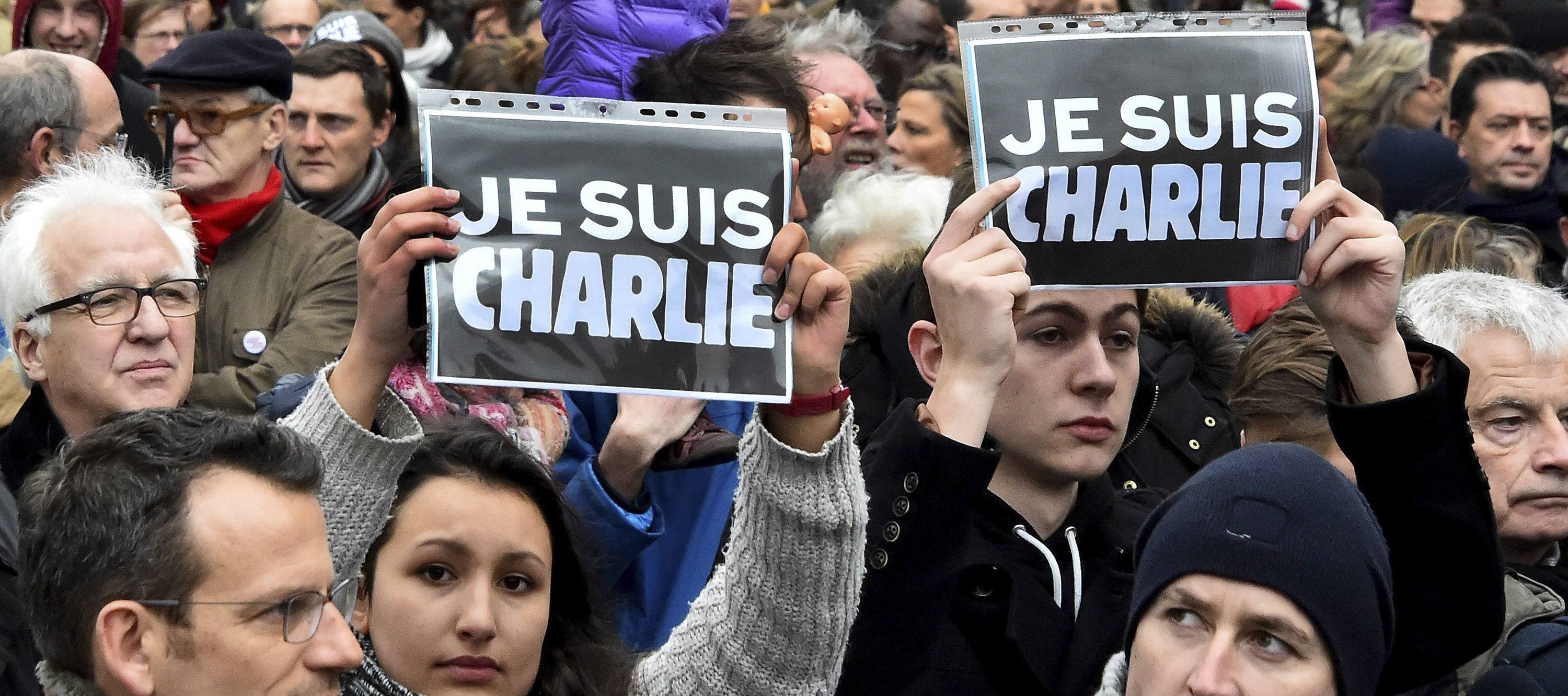Threats and attacks inspire discussions of censorship
Two distinct events — a terrorist threat on a U.S. movie studio in November and 12 cartoonists killed in France this month — brought the subject of free speech to the forefront of global conversation.
Late last year, Sony Pictures discovered a cyber hack had collected over 100 terabytes of stolen data. These hackers made terrorist threats if “The Interview,” a comedy starring Seth Rogen and James Franco, was released in theaters.
On Jan. 7 the offices of Charlie Hebdo, a Parisian satirical magazine, were attacked. The shooting left 12 dead and 11 wounded.
“This is the first time really in our nation’s history that has provided an opportunity in which, when we exercise our freedom of speech, we are exercising it for the entirety of the world,” said Matthew LaPlante, assistant professor of journalism at Utah State University.
“The Interview,” a comedy depicting a plot to assassinate North Korean leader Kim Jong-un, was originally scheduled for a Dec. 25, 2014 release date. The cyber hackers threatened to terrorize any theater that showed the film.
“Remember the 11th of September 2001,” the hackers wrote in an email to Sony in December, as published in The Daily Beast.
It’s still unclear whether these threats came from North Korea itself.
Miles Vaughn, a sophomore majoring in biology, shared his thoughts on the movie and the related events.
“The whole thing, their movie getting pulled because of North Korea, it sounds like a movie,” Vaughn said, “but it’s really what happened.”
Vaughn, like others, saw the film despite the controversy that surrounded it. Vaughn doubts the seriousness of the threats, however.
“I mean, how many threats has [Kim Jong-un] made? None of them have come to fruition,” he said.
Instances take a morbid turn, however, when threats do come to fruition.
Charlie Hebdo is no stranger to threats or attacks. The BBC reported on instances of intimidation and violence towards the French magazine in 2006, 2011 and 2012, all related to satirical cartoons of the Muslim prophet Muhammed. Charlie Hebdo’s controversial brand of journalism uses satire to get people talking and engage in topics that they would not otherwise.
“I do think of satire as journalism, and I think we all can agree that journalism is useful and necessary in our society,” said Nicole Vouvalis, diversity and special projects coordinator for Utah State. “When people are murdered for that, it’s really tragic and sort of unfathomable.”
LaPlante recalled a time in third grade when he started a newspaper with a friend. When covering a teachers’ strike at his school, an editorial that the teachers viewed unfavorably was removed from the final paper.
Ironically, attempts to prevent the editorial from being read ultimately brought more readers, LaPlante said. All of the students who were otherwise apathetic became interested, and more people ended up reading the editorial when it was published. LaPlante’s experience with censorship even gained attention on the TV news.
Charlie Hebdo seems to have experienced a similar effect, in LaPlante’s opinion. The BBC reported in January that the magazine’s first issue after the attack will run 3 million copies, opposed to its normal 60,000 copies.
This situation has led to questions of whether there should be limits on free speech if it leads to such serious implications. Vouvalis, among others, doesn’t think so.
“I struggle with groups that practice public intolerance, but I recognize that their right to say what’s unpopular is also my right to say what’s unpopular,” Vouvalis said. “Many things that I think most of us believe are good and right came from someone’s ability to speak the unpopular first.”
— whitney.howard@aggiemail.usu.edu
Twitter: @Whitleebee

